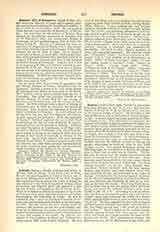

Gedoyn, NICOLAS, a French translator and literary critic; b. at Orleans, June 17, 1667; d. August 10, 1744, at Port-Pertuis, near Beaugency. After studying in the College of the Jesuits, he entered their novitiate in 1684, becoming later professor of rhetoric at Blois. Ill-health, afterwards, obliged him to resign this position, and leave the Society of Jesus, for which, however, he always retained his affection. A canonicate at the Sainte-Chapelle (Paris) and two abbeys gave him the means of devoting himself to educational works. In 1711, he was elected to membership in the Academie des Inscriptions et Belles-Lettres, and in 1718 his free translation and adaptation of Quintilian, containing many allusions to contemporaries, was the occasion of his election to the French Academy. He also translated Pausanias (1731), and wrote “Reflexions sur le gout”, published by d’Olivet in “Recueil d’opuscules litteraires” (Amsterdam, 1767). Several other memoirs and essays were collected by d’Olivet, and published under the title of “Oeuvres diverses de M. l’abbe Gedoyn”. They contain a life of Epaminondas, an apology for translations, essays on the education of children, Roman urbanity, the ancients and the moderns, etc. In education, Gedoyn is an advocate of progress, and deplores the routine and the tradition which make parents and educators conform blindly to received methods and usages without realizing that circumstances change and that methods of education should be adapted and modified in consequence. Three things are necessary to a complete education: knowledge, virtue and good manners; the constant endeavor of the master should be to develop these in his pupils. Since money spent by parents for the education of their children is an invested capital of the greatest importance, great care should be taken in the selection of tutors.
C. A. DUBRAY

